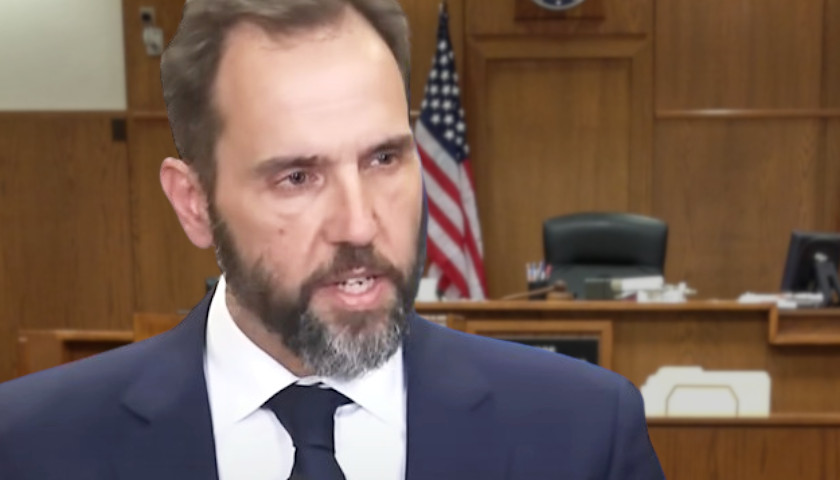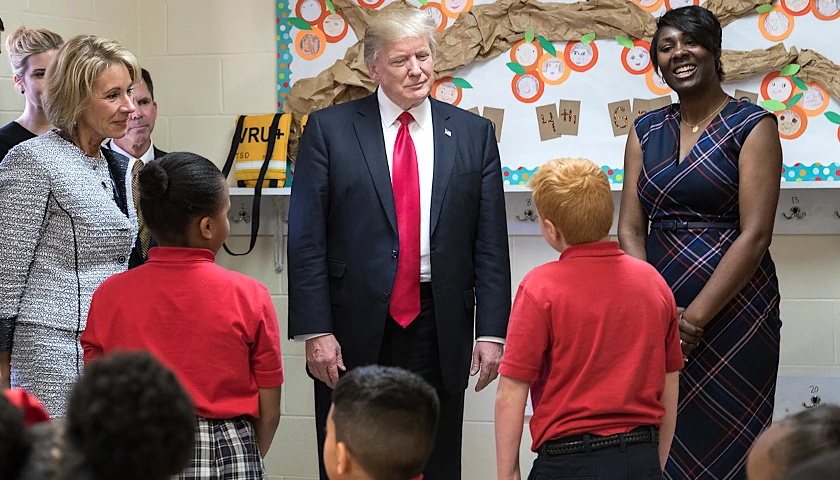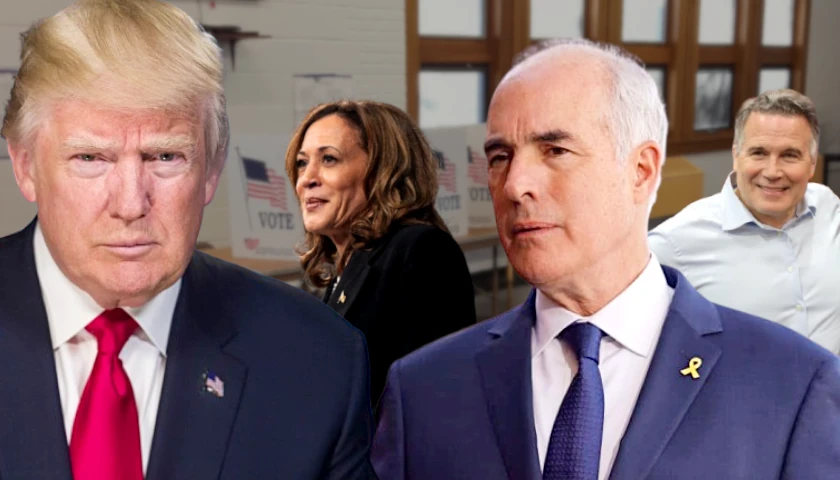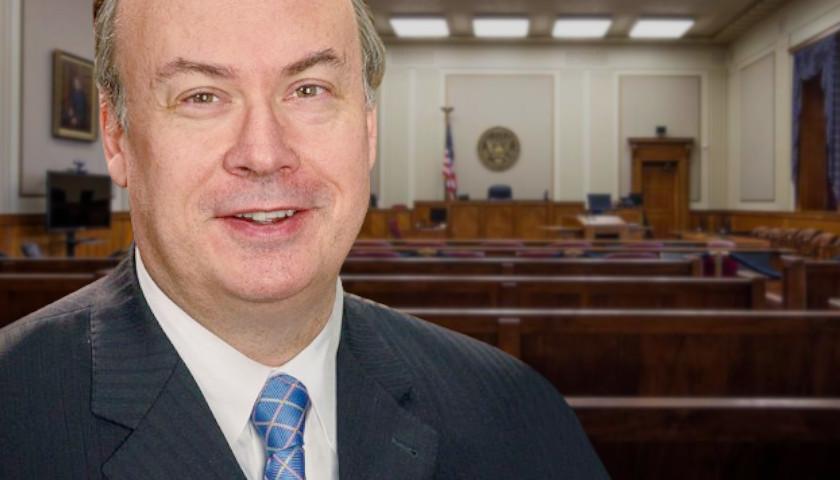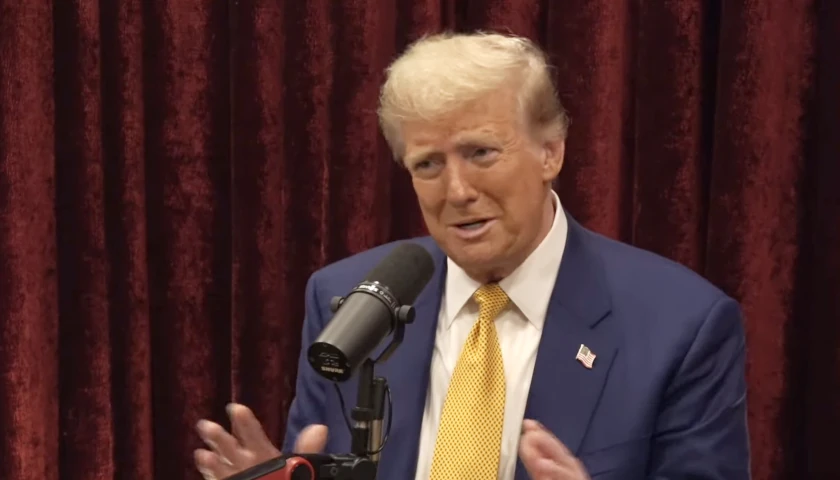U.S. District Court Judge Aileen Cannon may have just indefinitely postponed Donald Trump’s espionage and obstruction trial but that doesn’t mean her federal courtroom in Fort Pierce, Florida will lie dormant over the next few months.
In officially vacating the existing May 20 trial date—an impossibility considering the defendant will be in a Manhattan courtroom for the foreseeable future—Cannon declined to set another date, calling it “imprudent” at this stage of the process. She noted a “myriad” of unresolved matters in Special Counsel Jack Smith’s 42-count indictment against the former president and his two co-defendants, Mar-a-Lago employees Waltine Nauta and Carlos De Olivera, for willfully retaining national defense information and attempting to impede the government’s investigation.
Cannon, however, did schedule a number of proceedings that could be considered a way to put the Department of Justice on trial. In a stunning turn of events, Cannon, appointed by Donald Trump in 2020, is poised to make Smith a defendant of sorts.
Over the next several weeks, prosecutors will be forced to publicly counter defense motions that accuse the DOJ of selective and vindictive prosecution; insist the appointment of Smith is illegal; and claim that several parties, including Joe Biden’s White House, colluded behind the scenes as early as May 2021 to concoct the unprecedented case.
Her hearing schedule represents a broader spilling of bad blood between Cannon and the DOJ dating back to September 2022, when Cannon took the courageous step of appointing a special master, or third party, to vet the all of the evidence seized by the FBI during the armed raid of Mar-a-Lago the month before.
Noting at the time the prosecution’s suspected leaks to the news media and the mishandling of evidence in the early stages of the investigation—in addition to what she called the need for “public trust” in the case—Cannon granted Trump’s request for the special master.
Although the 11th Circuit Court overturned her order a few months later on grounds she did not have proper jurisdiction, Cannon now is exonerated amid disclosures by Smith in a May 3 brief that evidence has been mishandled and key documents possibly misplaced. “[There] are some boxes where the order of items within that box is not the same as in the associated scans (taken right after the raid),” Smith’s team revealed, referring to 34 boxes taken from Mar-a-Lago.
Smith also revealed that in some instances, sheets of paper that FBI investigators used to replace classified records within a box do not match. “In many but not all instances, the FBI was able to determine which document with classification markings corresponded to a particular placeholder sheet,” Smith wrote.
In other words, the government officials prosecuting Trump with mishandling top-secret files–mishandled top-secret files.
Even more problematic is Smith’s confession that his lead prosecutor, Jay Bratt, misrepresented to Cannon the existing condition of the boxes. During an April hearing, Cannon directly asked Bratt, “are the boxes in their original, intact form as seized?” Bratt replied that they were with “the exception that the classified documents have been removed and placeholders have been put in the documents.”
Smith admitted in a footnote that Bratt’s statement was “inconsistent” with the facts, which could prompt Trump’s counsel to seek a contempt of court charge.
But that might be the least of Smith’s concerns right now. Cannon’s aggressive hearing schedule will put Smith and the entire Justice Department on the hot seat—and the timing could not be worse; with the other criminal trials against Trump in Washington and Fulton County imploding, all eyes are focused on southern Florida.
A bit of background before turning to the pending schedule. After months of what can only be described as harassment by the National Archives, including Obama-appointed archivist David Ferriero, throughout 2021 to demand the return of alleged government records, Trump gave 15 boxes of papers to the archives in January 2022.
Archive officials immediately claimed they found material with “classified markings” among the boxes’ contents. That prompted for the first time ever the archives sending a criminal referral to the DOJ in February 2022. Smith indicted Trump and Nauta in June 2023; the following month, Smith added De Olivera and additional charges in a superseding indictment.
But defense attorneys now have evidence that disputes Smith’s course of events and the number of officials involved in the case. In January, the defense filed a motion asking Cannon to consider numerous agencies including the archives, the Biden White House, top DOJ officials, and the FBI as part of the prosecution team.
“New evidence, obtained via requests pursuant to the Freedom of Information Act reveals that politically motivated operatives in the Biden Administration and the National Archives and Records Administration (“NARA”) began this crusade against President Trump in 2021,” Trump’s lawyers wrote. “The FOIA releases, coupled with other evidence…reflect close participation in the investigation by NARA and Biden Administration components such as the White House Counsel’s Office, as well as senior officials at DOJ and FBI. These revelations are disturbing but not surprising.”
Hundreds of pages of exhibits show emails and meetings between archive officials and Biden’s general counsel’s office throughout the second half of 2021. Gary Stern, the archives general counsel, further disclosed in an August 2021 email that he had had “informal” talks with unidentified DOJ officials to seek advice on how to prepare a criminal referral against Trump for refusing to turn over government records.
Smith, naturally, denies the allegations, claiming defense attorneys were advancing “speculative, unsupported, and false theories of political bias and animus.”
Both sides will have the chance to duke it out next month.
Over the course of three days during the last week of June, per Cannon’s new schedule, Smith and the defense will participate in an extended hearing to debate evidence of collusion. Not only do the proceedings pose a risk to Smith’s case based on prior pleadings to the court but proof of correspondence and meetings contradicts public claims by Biden and Attorney General Merrick Garland that the investigation was independent of the White House.
Smith also will have to defend himself before the court during a June 21 hearing related to the potential unlawfulness of his appointment as special counsel. Citing an amicus brief filed by former Attorney General Edwin Meese before the Supreme Court earlier this year—Meese said that “Jack Smith does not have authority to conduct the underlying prosecution [because] those actions can be taken only by persons properly appointed as federal officers to properly created federal offices”—Trump also argues that “Jack Smith lacks the authority to prosecute this action.”
The controversy represents dicey territory for Smith; in fact, during oral arguments at SCOTUS last month on the question of presidential immunity, Justice Clarence Thomas asked Trump’s attorney whether they “challenge[d] the appointment of special counsel” in the matter, signaling the court may consider the amici brief in its final decision.
Smith has not yet responded to the hearing timetable; his media allies, however, continue to demand Cannon’s recusal.
But both Smith and his allies know Cannon has the upper hand. And it appears, at least for the time being, she plans to use it as a hammer against the DOJ.
– – –
Julie Kelly is an independent journalist covering the weaponization of the U.S. Government against her citizens, Follow Kelly on Twitter / X.

